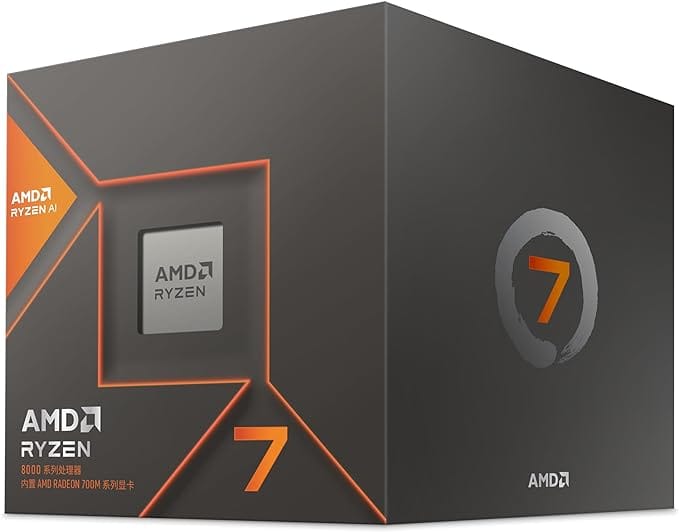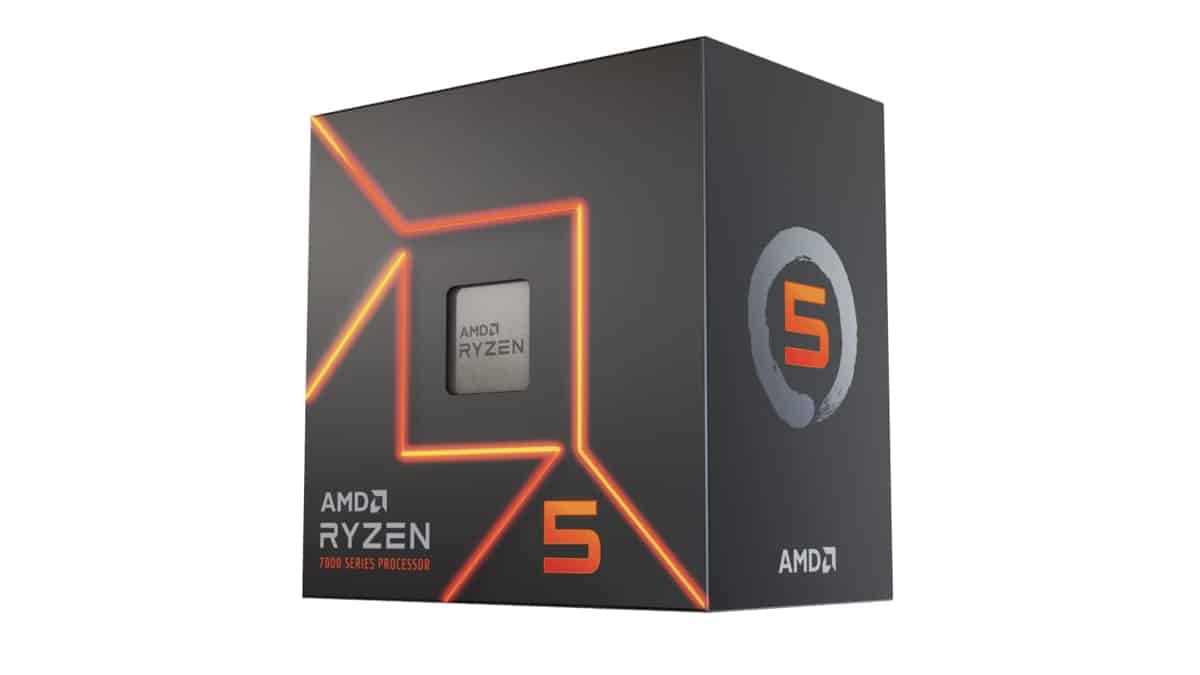AMD Ryzen 7 8700G vs Ryzen 5 7600 – what’s better value?

Table of Contents
The Ryzen 7 8700G was meant to battle against mid-range processors like the 7600X. However, in a match for the value-per-performance balance, we wonder who would win in a more close comparison. This article will compare the AMD Ryzen 7 8700G vs AMD Ryzen 5 7600; can the AMD Ryzen 7 8700G, with its APU prowess, beat its esteemed rival in delivering unmatched value? In this comparison, we aim to find the processor with the ultimate blend of power, efficiency, and affordability for your desktop. Will the APU beat the non-X version of one of the most popular AMD CPUs?
If you’re keen to find out more about AMD’s most recent APU launch, check out our best motherboard for the Ryzen 7 8700G or take a look at our Intel core i5 13400 vs Ryzen 5 7600 comparison guide.
Prime Day may have closed its doors, but that hasn't stopped great deals from landing on the web's biggest online retailer. Here are all the best last chance savings from this year's Prime event.
- Sapphire Pulse AMD Radeon™ RX 9070 XT Was $779 Now $719
- AMD Ryzen 7 7800X3D Processor Was $449 Now $341
- Skytech King 95 Ryzen 7 9800X3D gaming PC Was $2,899 Now $2,599
- LG 77-Inch Class OLED C5 TV Was $3,696 Now $2,996
- AOC Laptop Computer 16GB RAM 512GB SSD Was $360.99 Now $306.84
- Lexar 2TB NM1090 w/HeatSink SSD Was $281.97 Now $214.98
- Apple Watch Series 10 GPS+ Smartwatch Was $499.99 Now $379.99
- AMD Ryzen 9 5950X processor Was $3199.99 Now $279.99
- Garmin vívoactive 5 Smartwatch Was $299.99 Now $190
*Prices and savings subject to change. Click through to get the current prices.
AMD Ryzen 7 8700G vs AMD Ryzen 5 7600 – specs and performance
In the battle of AMD Ryzen 7 8700G vs AMD Ryzen 5 7600, the evolution of technology and design philosophy becomes evident through their specifications and performance. The Ryzen 7 8700G, a proud member of the Zen 4 generation with Ryzen AI technology, showcases AMD’s progress with its use of a smaller node. This leap to TSMC’s 4 nm lithography not only marks a stride in efficiency but also enables the APU to achieve a high clock boost/base frequency. This advancement allows the 8700G to push the boundaries of its calculations and what’s expected of an APU in terms of maximum speed.
Moreover, the 8700G’s architecture, featuring 8 cores, positions it as a powerhouse for productivity tasks. This increased core count is not just a numbers game; it translates into tangible benefits to the performance of a device. Public benchmarks, performance tests, and test results, as seen on the platform Cinebench, illustrate the 8700G’s superiority in this domain, outperforming the Ryzen 5 7600 by leveraging its additional physical cores to deliver enhanced performance and CPU speed in multitasking and demanding workloads. The 7 8700G also achieves an impressive 256 GB of memory bandwidth and boasts a 20/16 (total/usable) PCIe lane count.
| Specifications | AMD Ryzen 7 8700G | AMD Ryzen 5 7600 |
|---|---|---|
| Cores / Threads | 8/16 | 6/12 |
| Base Clock | 4.2 GHz | 3.8 GHz |
| Boost Clock | 5.1 GHz | 5.1 GHz |
| Lithography | TSMC 4 nm | TSMC 5 nm |
| Cache L3 | 16 MB | 32 MB |
| TDP | 65 W | 65 W |
| MSRP | $329 | $299 |
However, the Ryzen 5 7600, despite having fewer cores and belonging to a previous generation with its 5 nm process, holds its ground, especially in gaming. Its 32 MB of L3 cache plays a crucial role here, helping the CPU not only keep up but in many cases, deliver gaming performance on par with the 8700G. This cache memory is instrumental in reducing latency and improving access to frequently used data, allowing the 7600 to maximize its efficiency and performance output.
In essence, while the 8700G shines in productivity and multitasking, thanks to its higher core count and advanced architecture, the Ryzen 5 7600 demonstrates that strategic design choices like a larger cache size can significantly impact performance, enabling it to closely match the gaming prowess of its more technologically advanced counterpart.
AMD Ryzen 7 8700G vs AMD Ryzen 5 7600 – price
In the arena of pricing, the AMD Ryzen 7 8700G and Ryzen 5 7600 find themselves at pivotal crossroads. The 8700G, tagged at $329, stands $30 above the 7600's $299 price point. This modest difference in cost sets the stage for a deeper analysis of value and performance.
Despite this price gap, the hardware exhibits closely matched performance, especially in gaming scenarios. However, the 8700G edges ahead with its superior productivity outcomes, leveraging its additional cores and integrated graphics card. This isn’t just about numbers; it’s about the holistic value the 8700G brings to the table. For an extra $30, the 8700G emerges not only as a potent APU but also as a versatile performer capable of delivering solid gaming experiences without the necessity of an external GPU.
In essence, while the Ryzen 5 7600 is undoubtedly a formidable CPU within its price bracket, the Ryzen 7 8700G presents an enticing proposition. It stands as an impressive APU, offering a blend of productivity and great gaming performance. This makes the 8700G a compelling choice for those looking to maximize their investment in a system that can handle a variety of tasks.
Is an APU better than a CPU?
If you’re looking for the maximum amount of efficiency when comes to power consumption, then APUs come out on top. They combine both a graphics card and processor onto a single chip so they use less overall computing power; which can be especially important in smaller devices like laptops. However, if you’re a gamer looking to play a more demanding game on an APU then you may face some issues. APU can handle most games at low to medium settings without the need for a separate graphics card, but anything above that might require an external GPU.
AMD Ryzen 7 8700G vs AMD Ryzen 5 7600 – conclusion
In this CPU comparison, the AMD Ryzen 7 8700G stands out as the superior option. Despite its slightly higher price point, it justifies the extra cost with enhanced performance and the bonus of the strongest integrated GPU on the market.
This makes the 8700G not just a versatile APU capable of handling a wide array of tasks efficiently but also a cost-effective solution for those looking to forgo the additional expense of external components. For anyone aiming to strike a balance between performance, functionality, and budget, the Ryzen 7 8700G emerges as the undeniable choice, blending the best of productivity and gaming capabilities in one powerful package.



